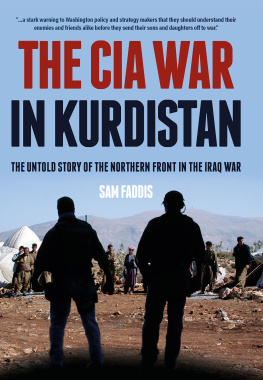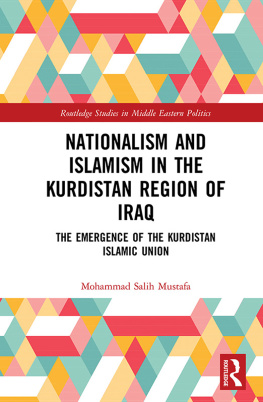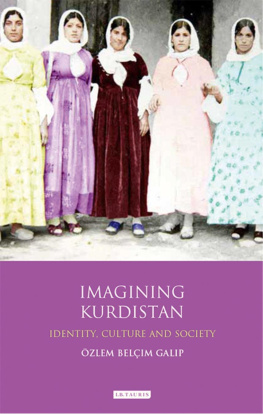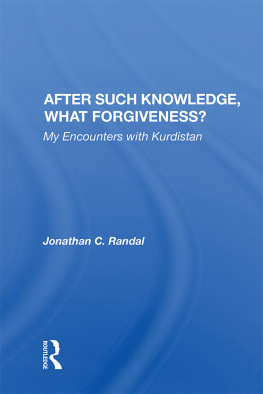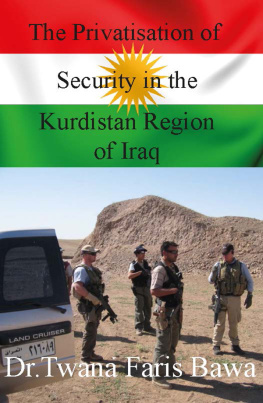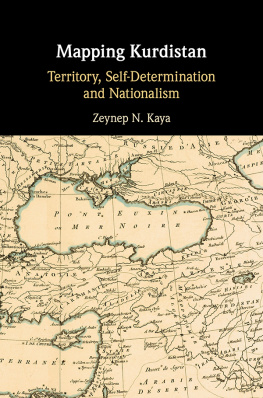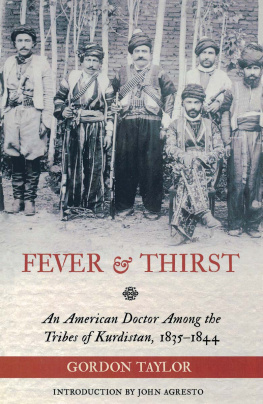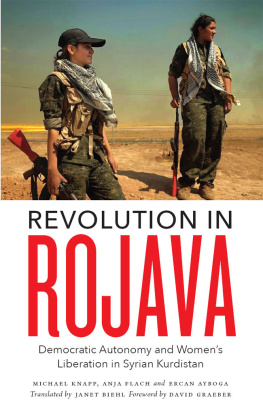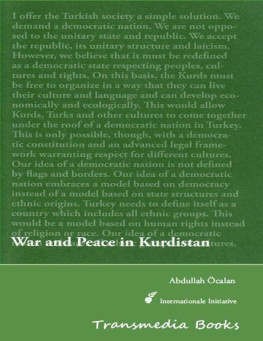Sam Faddis - The CIA War in Kurdistan
Here you can read online Sam Faddis - The CIA War in Kurdistan full text of the book (entire story) in english for free. Download pdf and epub, get meaning, cover and reviews about this ebook. year: 2020, publisher: Casemate Publishers, genre: Art. Description of the work, (preface) as well as reviews are available. Best literature library LitArk.com created for fans of good reading and offers a wide selection of genres:
Romance novel
Science fiction
Adventure
Detective
Science
History
Home and family
Prose
Art
Politics
Computer
Non-fiction
Religion
Business
Children
Humor
Choose a favorite category and find really read worthwhile books. Enjoy immersion in the world of imagination, feel the emotions of the characters or learn something new for yourself, make an fascinating discovery.
- Book:The CIA War in Kurdistan
- Author:
- Publisher:Casemate Publishers
- Genre:
- Year:2020
- Rating:5 / 5
- Favourites:Add to favourites
- Your mark:
- 100
- 1
- 2
- 3
- 4
- 5
The CIA War in Kurdistan: summary, description and annotation
We offer to read an annotation, description, summary or preface (depends on what the author of the book "The CIA War in Kurdistan" wrote himself). If you haven't found the necessary information about the book — write in the comments, we will try to find it.
The CIA War in Kurdistan — read online for free the complete book (whole text) full work
Below is the text of the book, divided by pages. System saving the place of the last page read, allows you to conveniently read the book "The CIA War in Kurdistan" online for free, without having to search again every time where you left off. Put a bookmark, and you can go to the page where you finished reading at any time.
Font size:
Interval:
Bookmark:

THE CIA WAR IN KURDISTAN
The Untold Story of the Northern Front in the Iraq War
SAM FADDIS

All rights reserved, including without limitation the right to reproduce this ebook or any portion thereof in any form or by any means, whether electronic or mechanical, now known or hereinafter invented, without the express written permission of the publisher.
Copyright 2020 by Sam Faddis
ISBN:
Casemate Publishing
1950 Lawrence Road,
Havertown, PA 19083, USA
www.casematepublishing.com
This edition distributed by Open Road Integrated Media, Inc.
180 Maiden Lane
New York, NY 10038
www.openroadmedia.com
Remember the lessons of history. Remember how often whole peoples have allowed themselves to be persuaded to go to war by wise menand then been utterly destroyed by the very enemy they agreed to attack! Remember how many statesmen have helped raise new leadership to powerand then been overthrown by their own protgs! Remember how often leaders have chosen to treat their friends like slavesand then perished in the revolutions caused by their idiotic methods! How many powerful men have craved to dominate the worldand by overreaching have lost everything they once possessed!
XenophonCommander of the Ten Thousand, a group of Greek mercenaries forced to retreat from Iraq through Kurdistan to the Black Sea in 401 BC. The Ten Thousand were stranded near contemporary Baghdad when the military invasion in which they were engaged fell apart, and they were abandoned to their fate. On their own, without outside assistance, and against a host of foes arrayed against them, the Ten Thousand succeeded in fighting their way out and returning to Greece.
To Hans, Happy, Angry, Sphinx, Rabbit, Snake, Socrates, HHH, Vinny, Indy, Radar, Blondie, Lobo, Boomerang, Winston, Guido, Spock, White Rabbit, Magnum, Doc, Evil Doc, Sunshine, Dakota, Tim, Sea God, Jungle, Seamus, Paddy, Bird, Shaggy, Fury, Gabe, T Rex, Citizen, Bullwinkle, Blue Falcon, Mom, Sasquatch, Doogie, Gadget, Uncle, Bones, Pops and Sunshine. Brothers and sisters all.
And to Sultana, who never forgot her lost boys.
And to little Gina, wherever she is, because in the end, this was all about her.
On my wall hangs a photo. In it are three people standing on the banks of the Tigris: Citizen, my senior reports officer; me; and Hans, my deputy. We are all wearing bullet-resistant vests. We are all carrying weapons. We are all standing in the middle of a city disintegrating into chaos.
In 2004 I went to Headquarters for an awards ceremony. Everyone who had been in Kurdistan during the period of 20022003 was to be recognized. With my colleague Tim, who commanded one of the CIA teams in Northern Iraq, I had put together the list of officers in our bases who should be decorated and what decorations they should receive. We agreed that everyone who had been in country should be decorated and also chose two officers from each base to be singled out for special recognition above everyone else.
Standing in line at that awards ceremony, I noticed a couple of things. First, there were at least a hundred people being given medals who had never spent a day in country. Second, there were people who were not being recognized at allCitizen was not present.
After the ceremony I asked about Citizen and some other officers. Eventually, reluctantly, I was advised that the list I had provided had been lost, so Headquarters had built a new list including those names that they could recall from the teams in Iraq. Some people were left off the list inadvertently. For some time thereafter, I corresponded with Headquarters from my new station in the Middle East, attempting to get them to rectify their error and recognize those officers who had been inadvertently omitted from the list of honorees. Eventually, I received a not particularly subtle message from the Chief of the Near East and South Asia Division telling me the matter was closed, and that I should discontinue my efforts to have someone address the situation.
Shut up. Move on.
The issue was no longer open for discussion. Iraq was in flames. The USs legacy, the direct result of the Coalition Provisional Authoritys bad decision making, had been civil war. Headquarters had no interest now in talking about our operations in Iraq in 20022003, or in the men and women who so bravely and exceptionally carried them out. They wanted to put it all in the rearview mirror and forget about it.
This book is my effort to make sure that never happens.
On December 30, 2006, Saddam Hussein, onetime ruler of Iraq, was hanged by the neck until dead on the orders of an Iraqi tribunal. The specific crime for which he was executed was the mass murder of 148 Shia men and boys in the village of Dujail in retaliation for the attempted assassination of Saddam in 1982.
In the larger context of what Saddam did throughout his reign, the Dujail murders were hardly of note. No one knows how many people had been killed under Saddams regime, but estimates run as high as half a million. One mass grave alone is estimated to hold the remains of 15,000 people.
No one paid a higher price under Saddam or more completely refused to abandon the fight to depose him than the Kurdish people.
The origins of the Kurds are not completely clear, but they have inhabited the area of Northern Iraq for a very long time. When Xenophon, the Greek general, made his famous fighting retreat out of what is now Iraq and back to Greece, he had to cut his way through the Kurds to do so. His account of that march leaves no doubt as to the ferocity of the warriors he faced.
During the IranIraq War (198088) the Kurdistan Democratic Party (KDP) in the mountains of Northern Iraq allied itself with Iran in the hope that it could leverage Iranian support to achieve independence and form a free Kurdish nation. The Barzani clan, which under Masoud Barzani formed the bulk of the leadership of the KDP, paid dearly for this betrayal. In 1983 Iraqi forces acting under the direct orders of Saddam Hussein rounded up more than 8,000 Barzani malesmany just boysexecuted them, and bulldozed them into mass graves. The first of their bodies were not found until 2005. Most remain unaccounted for to this day.
In the face of this atrocity, the world did nothing.
Far worse was yet to come. In 1988 Saddam launched what was called the Anfal campaign. Between February and September of 1988 Iraqi forces conducted a systematic genocidal campaign against the Kurds in Northern Iraq involving sustained aerial bombardment and the widespread use of chemical weapons. Under the command of Saddams cousin, General Ali Hassan al-Majid, Chemical Ali, 100,000 Kurdish men, women, and children were killed. This included the slaughter of over 5,000 people in the town of Halabja in a single day with a combination of nerve agents and mustard gas.
Survivors of the widespread chemical attacks during the Anfal campaign were captured and interrogated. Males between 15 and 70 were then shot and dumped into mass graves. By the time the campaign ended in fall 1988, 90 percent of Kurdish towns and villages had been wiped from the face of the earth.
The United States, more fixated on the threat posed by Iran than Saddam, took no action to stop the slaughter.
In 1991 Saddam invaded Kuwait, which he considered to be a historical part of Iraq. His army quickly overran that small nation but was subsequently crushed by a coalition consisting largely of American military forces. Encouraged by the defeat, and by the rhetoric of President George H. W. Bush, who seemed to be calling for Saddams ousting, the Kurds once again rose in rebellion.
Font size:
Interval:
Bookmark:
Similar books «The CIA War in Kurdistan»
Look at similar books to The CIA War in Kurdistan. We have selected literature similar in name and meaning in the hope of providing readers with more options to find new, interesting, not yet read works.
Discussion, reviews of the book The CIA War in Kurdistan and just readers' own opinions. Leave your comments, write what you think about the work, its meaning or the main characters. Specify what exactly you liked and what you didn't like, and why you think so.

